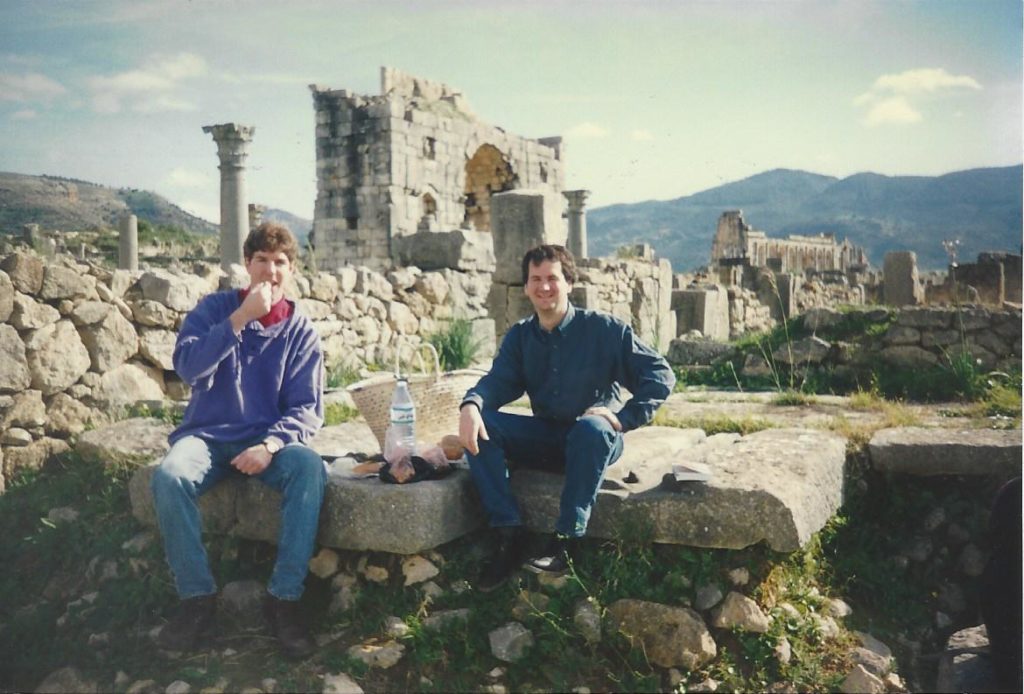Given
the current tit-for-tat, conflict oriented media and politics (generally
speaking), people knowing what words meant and mean now falls casualty to the sturm und drang. Also, words change their meaning in a present,
as time passes.
Among
the casualties the words:
Democracy
Republic
Liberal(ism)
Conservative(ism)
Granted,
these 4 words have long history of being abused in the American lexicon. But,
what they mean or meant to the Founders of the country, as opposed to what they
mean for most today, is relevant, I think. We struggle to operate inside the political structure/framework they laid down.
It
is curious characteristic of American political and legal debate that what the “framers”
of our constitution understood the various sections and amendments meant, is a
major part of constitutional interpretation now. I say curious, because, as
well explained in the book, The
Quartet: Orchestrating the Second American Revolution, 1783-1789 ; the
Framers would be puzzled by this view.
The
vagueness of the documents reflects the varied political positions of the Framers
and their respective states. They ended up towards the end of the process,
writing to each other that that was a good thing, as it allowed future
generation to constantly re-interpret the documents, in relation to the needs
and issued of the times.
Two
example of Judicial “Activism”/modern interpretation by the current Supreme
Court:
Gay
marriage & the “individual” right to have a gun (2nd Amendment
issues).
Ok.
Back to the political labels.
Democracy.
The
United States of America is not a democracy, as Jefferson, Madison Hamilton,
Washington et al would have told you. That is a question of how you structure
sovereignty in a given government.
“Democracy, (from Greek:
"δημοκρατία") or "rule of the commoners", was originally
conceived in Classical Greece, whereby political representatives were chosen by
lot (as in a jury) from amongst the male citizens.” This form /structure was
rejected by the Framers of our constitution in favor of the structure called a “republic”,
and created a modified Roman Republic model. https://en.wikipedia.org/wiki/Democracy
A republic (from Latin: res publica) is a sovereign state or country which is
organized with a form of government in which power resides in elected individuals representing
the citizen body and government leaders exercise power according to the rule of law.” https://en.wikipedia.org/wiki/Republic
“Liberal” in late 1700’s North America
was used to simply refer to the belief in the principles of The Age Enlightenment.
Therefore, It was the dominant ideology of the founders/Framers. For a brief
review of the expression of the Enlightenment in the colonial period of the
United States, the “first” revolution of the Enlightenment, and the early
republic, see American
Enlightenment .
Liberal
is tied to the concept of liberty,
both for the Founders/framers and their primary inspiration, the Roman Republic
(the goddess Libertas,
which is seen in the U.S. as the statue of liberty, and the paintings and statues
all over of the female figure Columbia and/or liberty. )
Liberty meant,
to the Founders/Framers, to be a liber homo, a “free man” means not being
subject to another's arbitrary will, that is to say, dominated by another.
Living in a society under the rule of non-arbitrary laws, passed by elected
representatives that you can vote for.
“Liberalism” has developed
distinct flavors through space and time. As did “conservative”. “Conservatism
as a political and social philosophy promotes retaining traditional social
institutions in the context of culture and civilization.”
The
first use of the term “conservative” ideologically in the U.S. was in the
1820’s in the term Liberal Conservatism. That is what the opponents of Andre
Jackson called themselves. “Liberal” was used in tandem with “conservative”
because it meant you supported the Enlightenment and did not favor the British
( the common meaning of conservative at the time, in the U.S.). Perhaps the
closest modern child of Liberal Conservatism in the U.S. is Libertarianism in
some ways. But technically, “Liberal Conservatism” is extinct in the U.S. and
the term is considered by those not familiar with the Enlightenment to be an
oxymoron.
The
negative association with the word may have contributed to the curiosity that
the United States never developed a “conservative” party, properly so called,
as is common in Europe and the other former British colonies, and Japan.
Instead, what Americans usually call conservative is actually with in the range
that is “liberalism”.
Assuming
you have read through the above hyperlinks, you are aware that liberalism
branched over time into distinct variants.
Iiberalism
in the United States
American
liberalism in all its variants, including the mis-labeled American Conservatism
through Progressivism share one particular element, that being Adam Smith inspired
concepts of market “capitalism”. Much of the
history of post-revolutionary political debate in the country can be viewed as
a changing range of argument between the political rights of the individual vs
the economic rights of land owners and large owners of capital. Socialism, much less
communism ever achieved a lasting purchase on the country’s political
landscape. Another form that failed to stick here was Fascism. The one late 19th
Century “ism” that has achieved entrée’ into the county’s political landscape
as elsewhere, was and is religious
fundamentalism.
The New
Liberalism
What
Americans tend to label “conservative” is actually properly called Neoliberalism . For
the reader not familiar with this term, I recommend the book Masters
of the Universe: Hayek, Friedman, and the Birth of Neoliberal Politics
In
the country, Neoliberalism has since about 1980 gained increasing mindshare. It
now the core philosophy of the Republican Party, and the majority of the
members of the Democratic Party. Currently in the Republican Party, neoliberalism
is joined with, for many a resurgent nationalism, and to a
lesser extent tinged with a tad of rascism.
Our
neoliberalism may be seen as consistent
with the end stage of the transition from republic to plutocracy. I think this transition is well illustrate by
some national/thematic issues, involving the concept of privatization.
Education. As
expressed in the series of Northwest Ordinances of 1785-1787, the young
republic committed to the creation and maintenance at the state level of public
education. In a republic, the main purpose of education is to create “citizens”.
Now, as we have become a neoliberal plutocracy, the primary purpose of
education is worker training. Also, the
neoliberal view is that public education needs to be privatized, opening a very
large new market.
Social
Security. As
American republicanism adapted to the industrial revolution one of the blooms
of that process was the Social Security System. Hardcore neoliberals now talk
about the problems of that system and argue a range of private sector
alternatives. The rational for it is the redefined concept, in neoliberalism of
individual/consumer/taxpayer
choice, as opposed to the traditional republican concepts of citizen/individual,
political choice.
Also,
privatization would open trillions of dollars from the social security fund, to
commissions for the financial sector of the economy, and all that that implies…
Citizens
United/1st Amendment rights of corporations
The
Framers/Founders would have flipped over that one. They, as was Adam Smith,
were very leery of allowing the formation of business corporations, In 1787
(the year of Constitutional Convention) in every state you had to have a bill
introduced in the state legislature to create a corporation. This was due to
the understanding that the concentration of capital tied to limited liability for
the shareholders created, in a republic, a dangerous concentration of influence,
that could lead eventually to a broad economic disparity if unchecked.
Therefore, the existence of a corporation was a public creation and a public
question, limited to a public purpose (unlike business partnerships and sole proprietors
which were considered private in nature).
Now
in every state, you create a corporation by filling a particular document and
paying a filing fee. Apparently by doing so you have can create a
Super-Citizen; a creature that has first Amendment rights, is comprised of
concentrated funds from owners who are not personally libel for what the
creature does.
Of
course, strong proponents of neoliberalism tend to also champion issues (wedge/values
issues, 2nd amendment, etc) that are apparently of significant interest
to Euroamericans who are not rich. This over the last 36 years gave birth to both
quasi-producerism of
the Tea Party and then the rise of Donald Trump. I think the neoliberals
certainly benefit from those issues. If the majority of the bottom 75%
economically speaking, actually examined their own lives and neoliberal ideas,
those ideas would not fair well.
























